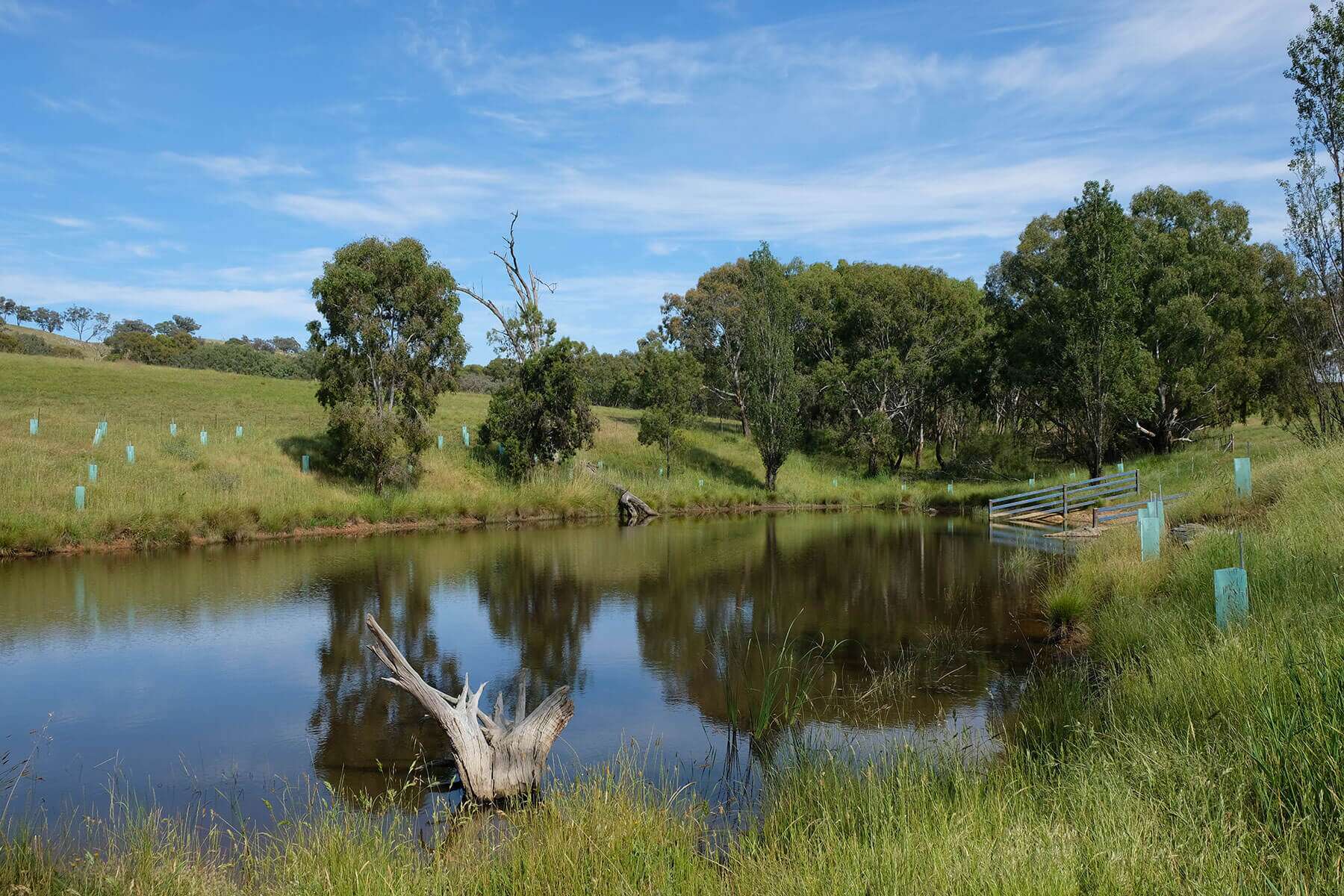What is an enhanced dam?
An enhanced dam is one where livestock access is managed to limit the impact of stock on the water body and on the surrounding vegetation.
When stock have unrestricted access to dams, they often congregate around the water’s edge, preventing the growth of vegetation through trampling and grazing, and pugging dam edges. This increases inflow of sediment and pollution of the water with faeces and urine.
An ideal enhanced dam has healthy native vegetation in and around the water body, which creates a buffer to filter nutrients and sediment from run-off. As a result of stock exclusion and better vegetation cover, the water is cleaner. Native vegetation also provides habitat for wildlife.
Most enhanced dams are fenced to exclude livestock, utilising a reticulated water system with tank and trough to provide clean water for stock.

Figure 1: An enhanced farm dam at Ettamogah NSW

